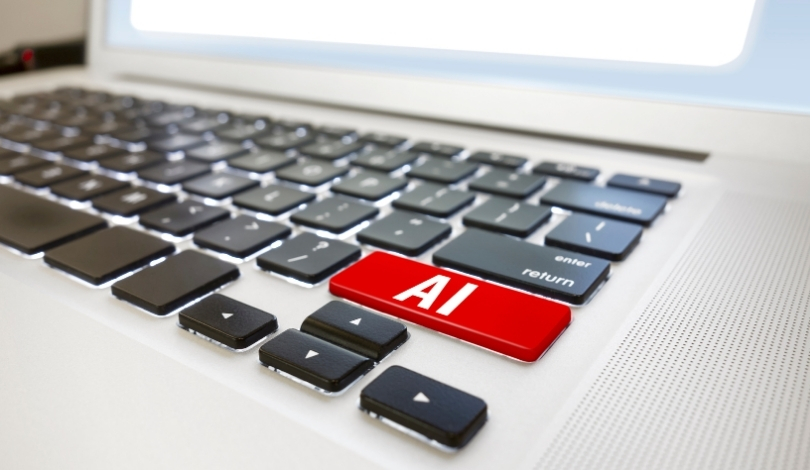Manufacturers facing frequent design changes and diverse product lines often seek flexible automation options. Augmentus, a Singapore-based robotics software firm, has secured strategic investment from Applied Ventures LLC to address this demand. The new funding is expected to increase the company’s reach in North America, Asia-Pacific, and Europe, supporting industries where adaptability and rapid deployment are valued. While automation continues to shape modern industry, Augmentus aims to simplify how factories use industrial robots in varying production environments without extensive programming knowledge. Their latest AutoPath robotics stack integrates 3D scanning and adaptive motion, offering an automated solution suited to unpredictable, high-mix manufacturing settings.
Similar announcements over the last year highlighted the growing importance of agile robotics platforms, yet many competitors have remained focused on traditional, high-volume manufacturing. Whereas some platforms streamlined programming or included AI for optimized toolpath generation, they often required specialist operators or lengthy setup times. In contrast, recent reports on Augmentus have noted the company’s efforts to remove these barriers with its no-code platform and enhanced compatibility. Market analysts have observed that many previous deployments prioritized predictable environments, and that Augmentus now seeks to enable robotics in more complex, variable workflows across several industries including aerospace and automotive.
How Does the AutoPath Stack Enhance Robotic Flexibility?
The AutoPath stack by Augmentus is built to allow robots to quickly adapt to changes in product geometry or orientation. Interfacing advanced 3D scanning with motion control, the system gives robots capability to analyze and respond to real-world changes in real time. This adaptability is essential for sectors such as aerospace and heavy industry, where new parts or prototypes regularly enter production. The precise scanning generates detailed point clouds, empowering robots to dynamically create operational paths for tasks like welding and surface finishing. According to Augmentus, this significantly reduces dependence on expert robot programmers.
“This adaptability is critical to achieving closed-loop, autonomous manufacturing, where robots can respond to unpredictability just as a skilled human would,”
said Daryl Lim, CEO of Augmentus. The technology integrates with multiple industrial robot brands, further boosting deployment versatility.
What Role Does Investment Play in Scaling Adaptive Robotics?
Augmentus plans to use its recent investment to accelerate research and development as well as support expansion into global markets. The company expects to increase manufacturing capacity and fulfill existing customer commitments, focusing on regions where high-mix production is prevalent. Daryl Lim commented,
“This investment enables us to scale where it matters most. We’re expanding delivery capacity across APAC and North America to ensure that systems already booked by customers are delivered efficiently and fully supported.”
The strategy includes building stronger collaborations with system integrators in Germany, the United States, and Southeast Asia, aiming to provide more localized support as adoption rates increase. Investment from Applied Ventures aligns with that company’s interest in AI and advanced manufacturing technologies, reflecting broader confidence in adaptive robotics for industrial growth.
What Industries Benefit Most from Augmentus’ Adaptive Software?
Sectors such as aerospace, automotive, energy, and heavy industry are set to gain from this shift towards adaptable, no-code robotic solutions. Many of these industries require frequent process changes and benefit from technology that can reduce both setup times and programming complexity. The ability of AutoPath to rapidly deploy and reconfigure robotic systems means businesses can manage short production runs or handle frequent product modifications more efficiently. Applied Ventures, the investment arm of Applied Materials Inc., recognized the strategic significance of this by investing in Augmentus, stating that adaptive robotics are becoming increasingly important for manufacturing resilience. Companies in fields where product variation, precision, and high uptime are essential may soon view such platforms as a necessary component for staying competitive.
Adaptive robotics are emerging as a practical solution for factories managing diverse product lines and frequent process updates. By focusing on rapid deployment, reduced manual teaching, and compatibility with established robot brands, Augmentus positions itself to support manufacturers with changing demands. Comparatively, companies that adopt these types of no-code solutions may find it easier to maintain efficiency and scale operations, despite unpredictable production schedules. For industry leaders, integrating these technologies could translate into lower labor costs and reduced downtime, while enabling a broader variety of manufacturing applications. Readers looking to modernize or diversify factory operations may find that advances in adaptive robotics, like AutoPath, offer concrete pathways to increased flexibility and broader market opportunities.










